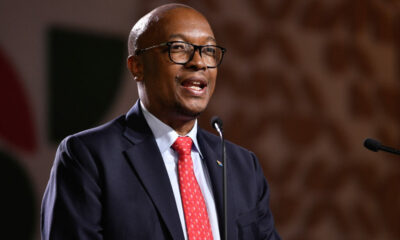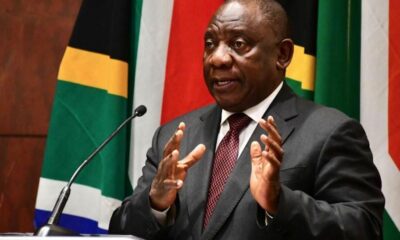News
R3 Trillion and Counting: Why the PIC Must Be Protected From Political Interference

In a country where trust in public institutions often feels like a fading dream, the Public Investment Corporation (PIC) stands tall as a rare success story. Despite being battered by scandals like the Steinhoff collapse, public sector instability, and intense political pressure, the PIC has not only survived but also thrived. Today, it manages over R3 trillion in assets, the majority of which belong to South Africa’s 1.2 million public servants.
This isn’t just a financial milestone. It is a symbolic one. And it could not come at a more crucial time.
A Legacy of Leadership Through the Fire
The PIC’s journey from R1 trillion to R3 trillion has not been without drama. Former leaders like Elias Masilela brought calm after the global financial crisis. Dr Dan Matjila steered the institution into developmental investment. Then came Abel Sithole, who resisted political arm-twisting during one of the most turbulent eras in public finance.
Now, the PIC is under the leadership of Patrick Dlamini, the former head of the Development Bank of Southern Africa (DBSA). Known for his ethical compass and track record in clean governance, Dlamini takes the reins of one of Africa’s most powerful financial institutions at a time when public trust in government-linked bodies hangs in the balance.
This Is Workers’ Money. Full Stop.
Here’s the reality: over 90% of the PIC’s assets belong to ordinary public servants, from nurses and teachers to police officers and municipal clerks. Their futures, their pensions, and their dignity depend on what the PIC does with that money.
That makes the PIC more than a balance sheet. It is a social contract between the state and its workforce. Which is why the biggest threat to the PIC is not the market. It is politics.
We’ve seen it before. Attempts to pressure the institution into bailing out failing state-owned entities. Deals masked as “strategic investments” that turned out to be little more than looting expeditions. CEOs were pushed out for refusing to play along.
And now, as South Africa heads toward a turbulent political season, the pressure is rising again.
Let the PIC’s CEO Do the Job
What the PIC needs now is space to breathe. To do its job. And for its new CEO to lead without having to look over his shoulder.
Dlamini’s job is not to please politicians. His job is to grow workers’ capital in a way that is ethical, impactful, and future-proof. And if his work at the DBSA is anything to go by, he is more than capable.
Let him lead. Without interference. Without manipulation. Without capture.
What Needs to Happen Next
There are three urgent tasks if the PIC is to remain a tool for economic justice rather than a casualty of political chaos:
-
Protect the CEO’s independence. Do not let this be another case of a principled leader pushed out for saying no to the wrong people.
-
Tighten parliamentary oversight. Transparency must trump ideology. Legislators must reject backdoor bailouts disguised as public good.
-
Prioritise people-led development. Invest in what matters: housing, education, healthcare, and industries that create real jobs, not connected cronies.
The PIC Is Not for Sale
The Public Investment Corporation is not a slush fund. It is not a party donation pipeline. It is a pillar of stability for over a million South Africans who show up to work every day, often for modest salaries and little recognition.
Those workers have earned their dignity. The PIC is a promise to honour that.
This is not a time for interference.
Public servants deserve protection, not politics.
And Dlamini deserves space to lead, with the nation’s trust behind him.
Also read: Court Evicts Business from Heidelberg Heritage Museum After R1.3 Million Power Bill and No Lease
Follow Joburg ETC on Facebook, Twitter, TikTok and Instagram
For more News in Johannesburg, visit joburgetc.com
Source: IOL
Featured Image: BusinessLIVE



























